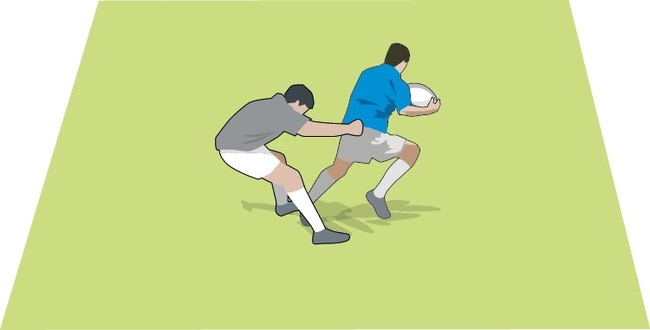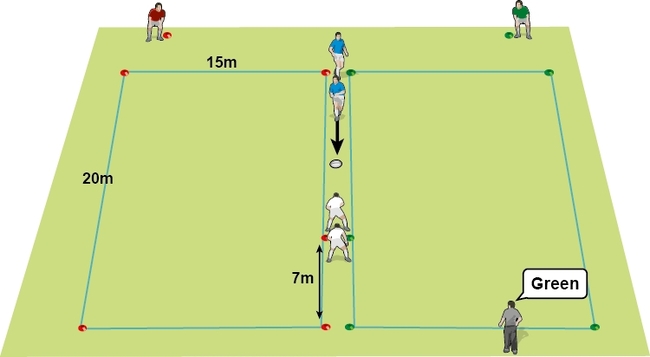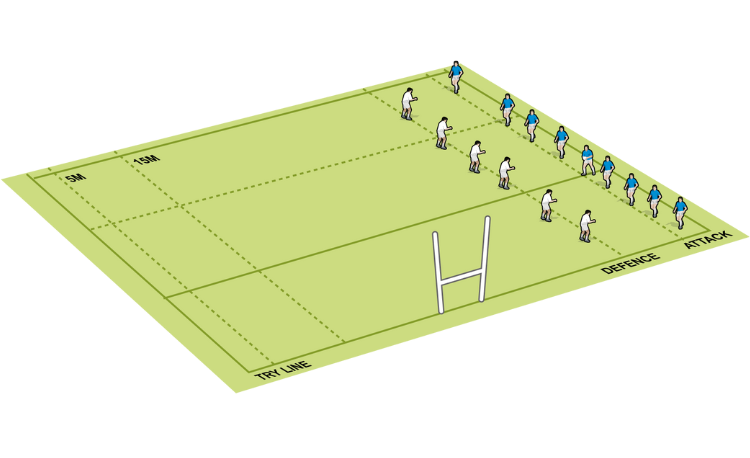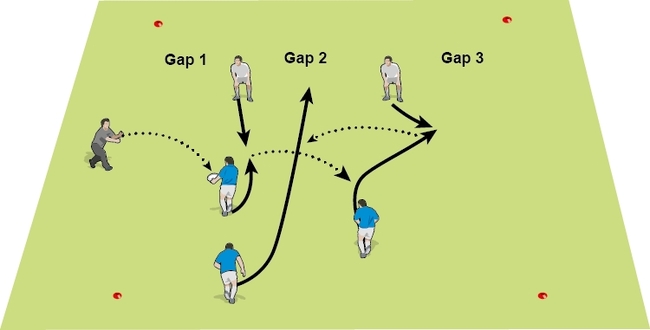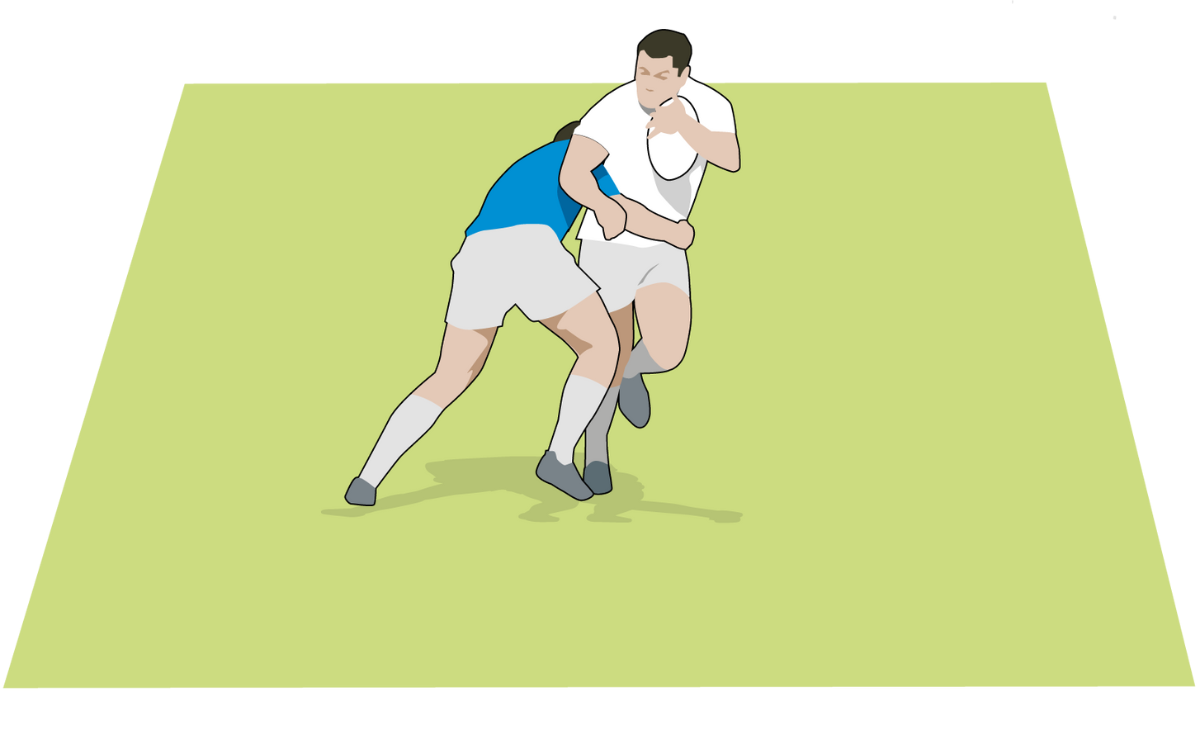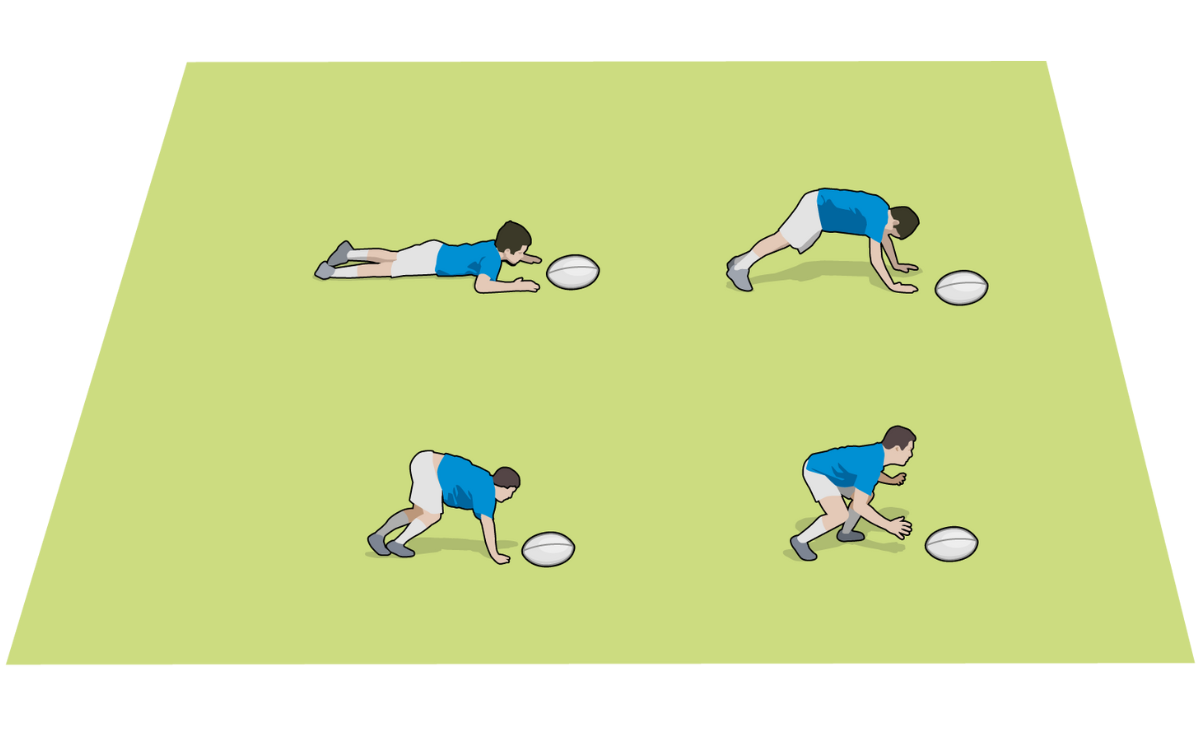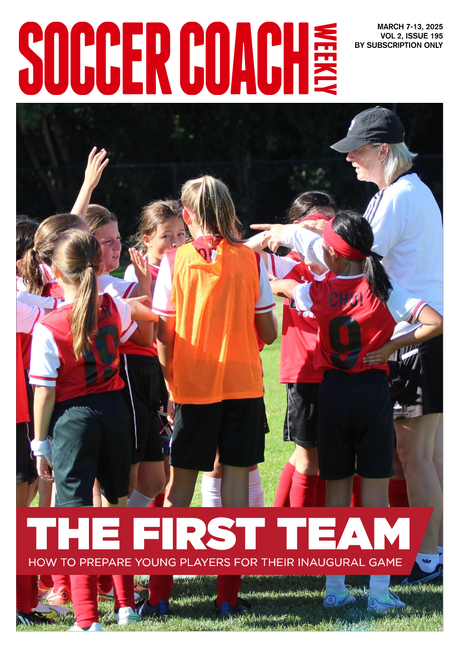Miss pass: the devil’s skill

The miss pass has been used extremely effectively in the top pro-games to score some great tries. Yet it’s also so tempting to use at the wrong times by simply shifting the ball wide without fixing defenders. Avoid this sin with these ideas…
The miss pass is a much-maligned skill. It’s not just a long pass. The best miss passes force a defender to stay glued to the missed-out attacker, allowing the receiver more time and space.
So, what are the attributes of a great miss pass: Hard and fast, flat, late.
It’s hard and fast because it needs to win a race. That’s the time a defender has to adjust to move from an attacker who was supposed to get the ball to the new attacker. It also has to be hard because gravity will make the ball fall towards the ground and that’s more pronounced over a longer pass.
It’s flat because it gives less time for the defender to move, and the attacker has more chance to run onto the pass. And it’s late for the same reason.
While plenty of players can pass long off one hand, the number of players who are competent off both is far fewer. But remember, the miss pass is not just a long pass, it’s a conscious decision to draw a defender onto the missed player. That’s why you have to set up realistic situations in training.
Use Execute perfect miss passes as a basis for this. It starts with the mechanics. Players get used to the timing involved. Yet, if you don’t get to the development, you’ve not really challenged your players to use the miss pass. Instead they’ve just been using long passes.
The difficult part comes in avoiding an interception. The passer must engage their defender and look to check that the other defenders won’t step in. Technically, you can suggest to the passer that they need to be facing up the pitch, head up and looking a little to the side. Their peripheral vision will do the rest.
But the reality is that you need to let them make mistakes and work out how to see when to make the pass. To that end, I encourage the defenders to go for interceptions, both in the session and in games.
This is a high mistake environment and you should warn the players that this is likely to be the case. They should reflect on what they can do better next time.
Play “miss pass” once you’ve run the session.
MISS PASS GAME
- Play 6 v 2 starting from the 22m line playing in, with the ball on the 15m line.
- Attackers are only allowed one phase per attack and can’t go down the 15m channel. To score a try there must be at least one miss pass in the move. Add a defender each time a try is scored (up to six). See which team can get the longest try-scoring sequence. Use two-handed touch tackling or full tackling.
Related Files
Newsletter Sign Up
Coaches Testimonials

Gerald Kearney, Downtown Las Vegas Soccer Club

Paul Butler, Florida, USA

Rick Shields, Springboro, USA

Tony Green, Pierrefonds Titans, Quebec, Canada
Subscribe Today
Be a more effective, more successful rugby coach
In a recent survey 89% of subscribers said Rugby Coach Weekly makes them more confident, 91% said Rugby Coach Weekly makes them a more effective coach and 93% said Rugby Coach Weekly makes them more inspired.
Get Weekly Inspiration
All the latest techniques and approaches
Rugby Coach Weekly offers proven and easy to use rugby drills, coaching sessions, practice plans, small-sided games, warm-ups, training tips and advice.
We've been at the cutting edge of rugby coaching since we launched in 2005, creating resources for the grassroots youth coach, following best practice from around the world and insights from the professional game.




